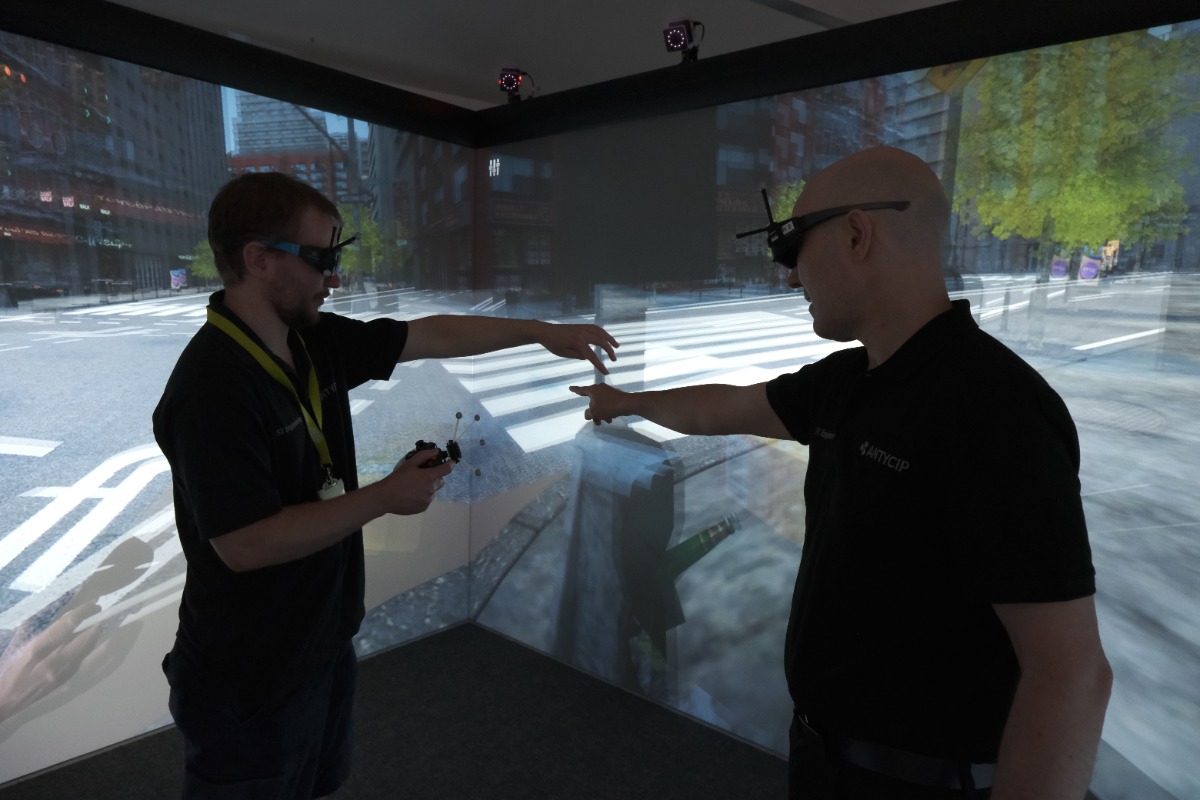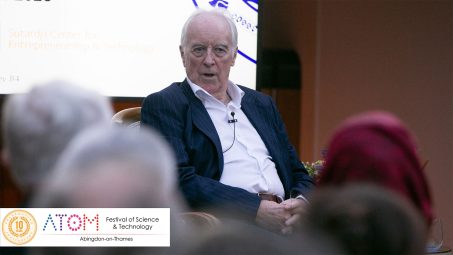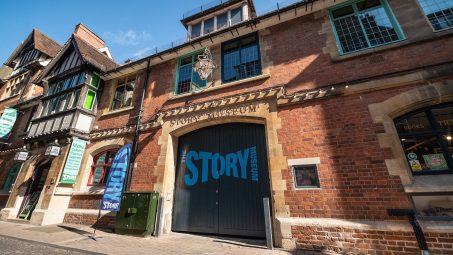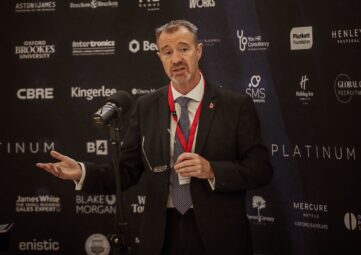
Fully immersive virtual reality cave opens on Oxford Brookes campus in UK university first
Oxford Brookes University has today unveiled its new fully immersive Virtual Reality Cave, the first in the UK that can be used to experience two different dynamic perspectives of a 3-D landscape simultaneously.
The lab has been installed at the University’s Wheatley Campus and is being used by students and staff across all disciplines to test and refine complex designs for buildings and electro-mechanical systems as well as immersive education tools and high resolution biotech projects.
Users of the cave wear special 3-D eyewear enabling them to look around, under and inside objects they are designing or exploring. This enables them to measure and manipulate parts, refining and comprehending their design in real time using the virtual representation rather than having to build a physical version of an object and then refine it, which cuts down on wasted engineering time and materials.
Gordana Collier, Head of Engineering, Computing and Maths at Oxford Brookes University who is overseeing the installation of the new cave said: “It’s so exciting to see this cutting edge technology here for our students to use. We’re the first university to bring in this latest technology for our students to use in their studies, also preparing them for the workplace after they graduate. This system can be used in so many technical areas, from designing and simulating the build of high voltage electric vehicles, whilst avoiding the risk of electric shocks, to virtually blow air over an object simulating aerodynamic drag, to operating the systems controlling nuclear reactors.”
The system at Oxford Brookes uses Techviz – a VR enabling software programme that brings CAD drawings or other types of data to life in a virtual 3-D world. It uses a spatial tracking system to let users look around objects giving a sense of presence in the virtual world. For example, Gordana suffers from vertigo and experienced this when using the cave to simulate being at the top of a building in a cityscape recreated inside the cave. As the system allows projection of an image at any scale, designers can see what their creations will look like in real life – helping with the practical experience of what something will be like for the user once it is built.
One of the research projects at Oxford Brookes led by Iakovos Tzanakis and Mahak Mahak will be using the new cave in conjunction with numerical simulations to work out the best way to position vertical wind turbines to generate the maximum possible amount of electricity from a certain distribution – increasing their cost effectiveness and speeding up the UK’s green energy transition. Iakovos said: “Each turbine alters windflow nearby – so the ability to virtually experiment the generated power density and overall efficiency with the effect of where we put each one on airflow and to immediately test various layouts by using this super fast virtual reality is really exciting.”
Oxford Brookes is in talks to start collaborating with other overseas universities who will be purchasing this new technology and intend to share models and experience. The Formula Student team from the University of Egypt are also coming over to experience designs in the virtual reality cave.
The virtual reality cave installation was led by John Mould from ST Engineering Anticyp, a European leader in VR technologies, based in Oxfordshire, that supplies organisations around the world. He said: “It’s really exciting to be able to bring the first multiviewer stereoscopic VR cave to students – I’m looking forward to seeing how they use it in their projects and how this innovation will foster a more natural collaboration.”
The cameras used to track the person’s vision and movement to simulate a lifelike interaction in the cave are similar to the ones used in the special fx departments for Hollywood blockbuster films like Spiderman. The specialist glass screens that converge to form the projection “walls” of the cave have a unique optical coating high spec glass that makes up the sides of the cave has a special coating created with a secret formula that makes the projections more lifelike.
Read more B4 Business News here
Join our LinkedIn Page
More in Education

Stephen Clarke: Leading the Way at the ATOM Festival of Science...
Stephen Clarke, our Principal at Cherwell College Oxford, is not only a distinguished leader and former British diplomat, but also a passionate advocate for science and education. As the Chairman of ATOM Festival of Science & Technology, Stephen plays a pivotal role in bringing world-class scientific discussions and innovations to the heart of Abingdon. Stephen’s leadership ensures that the festival remains dynamic, inclusive, and engaging for people of all ages.

The Story Museum: Bringing Stories to Life in Magical Ways
The Story Museum is no ordinary museum. Nestled in the heart of Oxford, this unique, immersive space is dedicated to celebrating the power of storytelling in all its forms. Whether through interactive exhibitions, live performances, or creative workshops, The Story Museum is on a mission to enrich lives—especially young lives—through the magic of stories.

Unleash Your Potential: AI & Innovation Summer Camp at Cherwell College...
In an ever-evolving world where innovation drives progress, equipping oneself with cutting-edge skills becomes paramount. Cherwell College Oxford proudly presents its AI & Innovation Summer Camp, a transformative journey designed to empower young minds with the tools and insights needed to thrive in the digital age. Here’s why this programme is a must for aspiring innovators:
From this author

Olympics 2024: Getting the balance right in sports nutrition
As the countdown to the Olympics gets underway, the focus for athletes is on getting fitter, faster, and stronger, but at what cost? Qualified sports nutritionist Clare Shaw, a Senior Sports Lecturer at Oxford Brookes University, and a practitioner on the Sport and Exercise Nutrition register (SENr), is researching the impact of low energy availability in athletes for her PhD. Here she discusses her research and offers tips for balancing energy intake and output.

Oxford Brookes University to showcase cutting-edge AI research at free week-long...
Oxford Brookes University will be showcasing the most recent developments and breakthroughs in artificial intelligence research at its annual Festival of AI this week. The festival runs from today until 7 June and includes a series of free workshops that will explore how AI can revolutionise schools, business and society.

Local business leaders in Oxfordshire tell Chancellor: Keep graduate visa route...
Oxfordshire Local Enterprise Partnership (OxLEP) has joined university and business leaders to warn the government against watering down or scrapping the graduate visa route.


